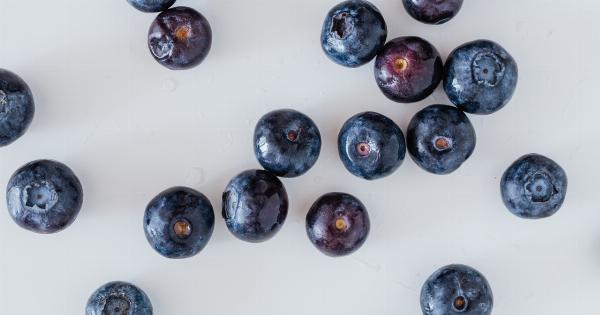During pregnancy, it is essential for mothers to nourish their bodies to support the growth and development of their babies. A well-balanced diet is crucial to ensure that both the mother and baby receive adequate nutrients for optimal health.
The Kiliokakis Pregnancy Diet offers a comprehensive guide to reducing risks for your baby and promoting a healthy pregnancy journey.
The Importance of a Healthy Pregnancy Diet
A healthy pregnancy diet plays a fundamental role in the overall well-being of both the mother and the baby. It provides essential nutrients needed for the baby’s growth and development while minimizing the risk of complications during pregnancy.
A nutritious diet also enhances the mother’s energy levels, reduces the likelihood of gestational diabetes, and promotes a healthy weight gain during pregnancy.
Understanding the Kiliokakis Pregnancy Diet
The Kiliokakis Pregnancy Diet is a holistic approach to nutrition during pregnancy. Developed by renowned nutritionist Dr.
Sophia Kiliokakis, this diet is designed to optimize the health of both the mother and baby by focusing on key nutrients and minimizing potential risks.
1. Increasing Caloric Intake
During pregnancy, the body requires additional calories to support the growing baby. However, it’s important to choose nutrient-dense options rather than simply increasing overall calorie intake.
Focus on whole foods such as fruits, vegetables, whole grains, lean proteins, and healthy fats to meet your increased energy needs.
2. Essential Nutrients for Your Baby
Ensuring an adequate intake of essential nutrients is crucial for the baby’s development. Include the following nutrients in your diet:.
a) Folic Acid
Folic acid is essential for the formation of the baby’s neural tube, which develops into the brain and spinal cord. Increase your intake of foods rich in folic acid, such as leafy green vegetables, citrus fruits, legumes, and fortified grains.
b) Iron
Iron is necessary for the production of red blood cells and oxygen transport for both the mother and baby. Include iron-rich foods like lean meats, poultry, seafood, spinach, and beans in your diet.
Pairing these foods with vitamin C-rich options can enhance iron absorption.
c) Calcium
Calcium is crucial for the development of the baby’s bones and teeth. Ensure an adequate intake of dairy products, fortified plant-based milk, leafy green vegetables, and calcium-rich nuts and seeds in your diet.
d) Omega-3 Fatty Acids
Omega-3 fatty acids promote the baby’s brain and eye development. Include fatty fish like salmon and sardines, chia seeds, flaxseeds, and walnuts in your diet to obtain omega-3 fats.
3. Foods to Avoid or Limit
While focusing on nutrient-rich foods, it’s essential to be aware of foods that may pose risks during pregnancy:.
a) Raw or Undercooked Foods
Avoid consuming raw or undercooked eggs, meat, seafood, and unpasteurized dairy products, as they may harbor harmful bacteria like salmonella or listeria.
b) High-Mercury Fish
Avoid high-mercury fish like shark, swordfish, king mackerel, and tilefish, as they may negatively impact the baby’s nervous system. Choose low-mercury options like salmon, trout, and sardines instead.
c) Caffeine
Limit your caffeine intake as excessive consumption may increase the risk of miscarriage or preterm birth. Stick to low or moderate amounts of caffeine from sources such as coffee, tea, or chocolate.
d) Alcohol
Avoid alcohol completely during pregnancy, as it can lead to severe developmental issues and harm the baby’s overall health.
4. Hydration and Pregnancy
Staying adequately hydrated is essential during pregnancy to support the circulation of nutrients, prevent constipation, and maintain amniotic fluid levels.
Aim for at least 8-10 cups of water per day and increase intake if physically active or in hot weather.
5. Managing Nausea and Heartburn
Nausea and heartburn are common discomforts during pregnancy. To manage these symptoms:.
a) Nausea
Eat small, frequent meals throughout the day, include ginger in your diet, avoid greasy or spicy foods, and stay hydrated.
b) Heartburn
Opt for smaller meals, avoid triggers like spicy or fatty foods, eat slowly, and avoid lying down immediately after eating.
6. Regular Exercise and Rest
Along with a healthy diet, engage in regular exercise suitable for pregnancy to support overall well-being. Consult with your healthcare provider to determine the best exercises for you.
Additionally, prioritize sufficient rest and sleep to promote optimal health for both you and your baby.
Conclusion
The Kiliokakis Pregnancy Diet is a comprehensive approach to nutrition during pregnancy, focusing on essential nutrients and minimizing risks for both the mother and baby.
By following this diet and adopting a healthy lifestyle, you can reduce potential complications and promote a healthy and thriving pregnancy. Remember to consult with your healthcare provider for personalized advice and guidance throughout your pregnancy journey.
























